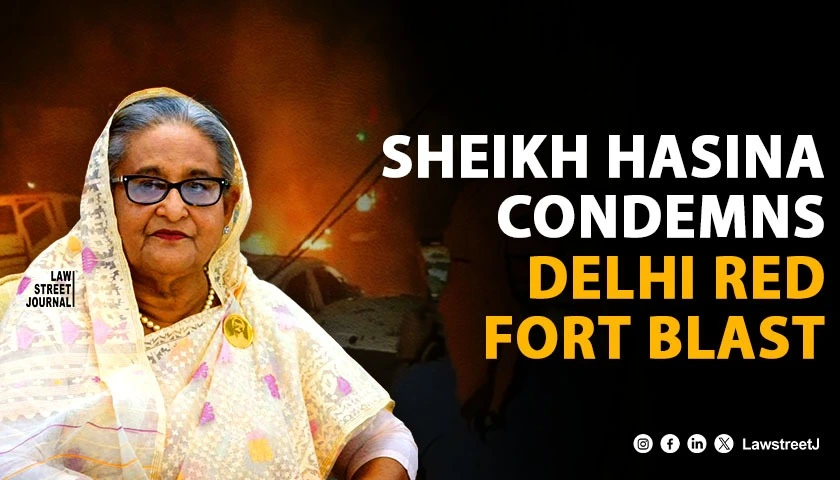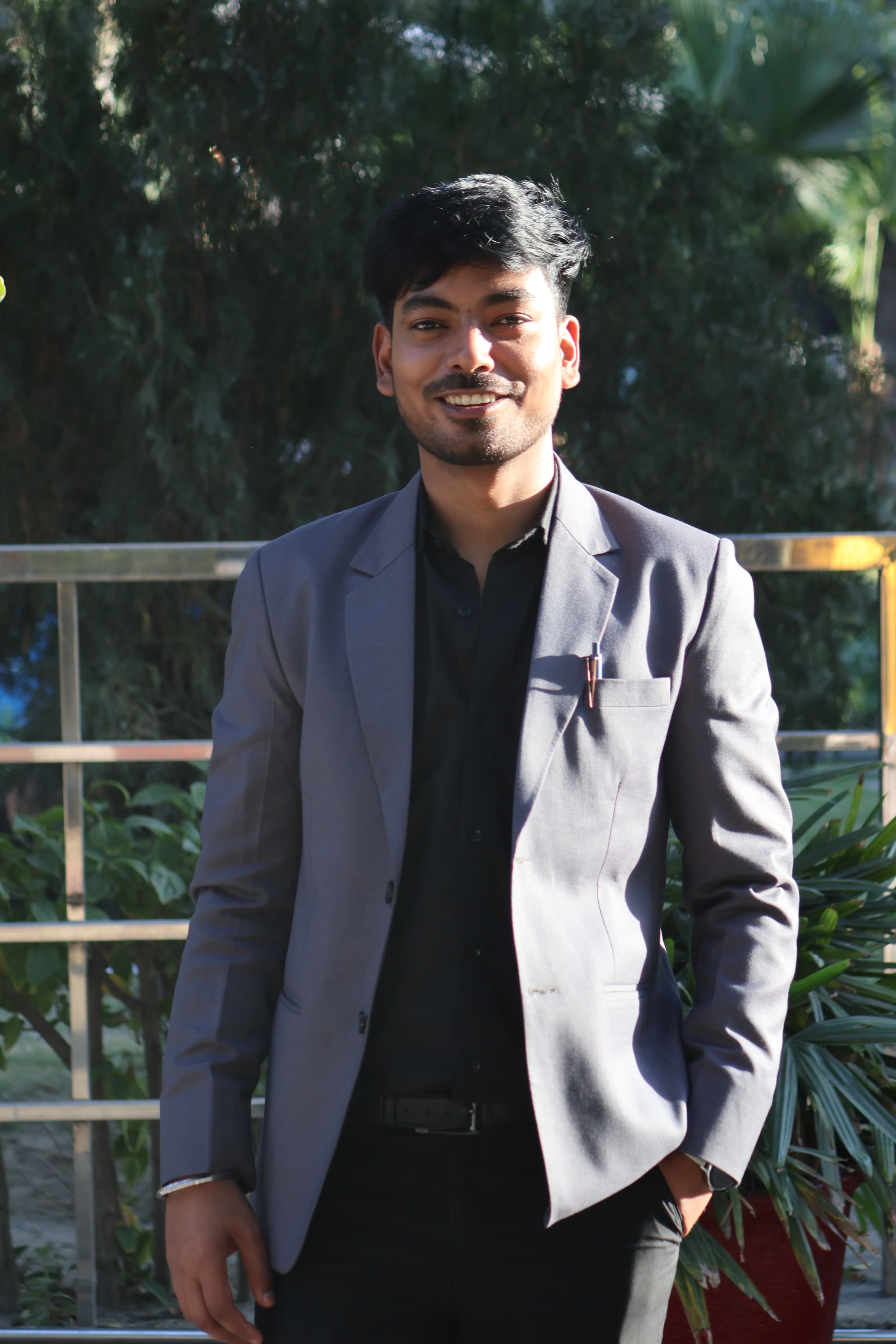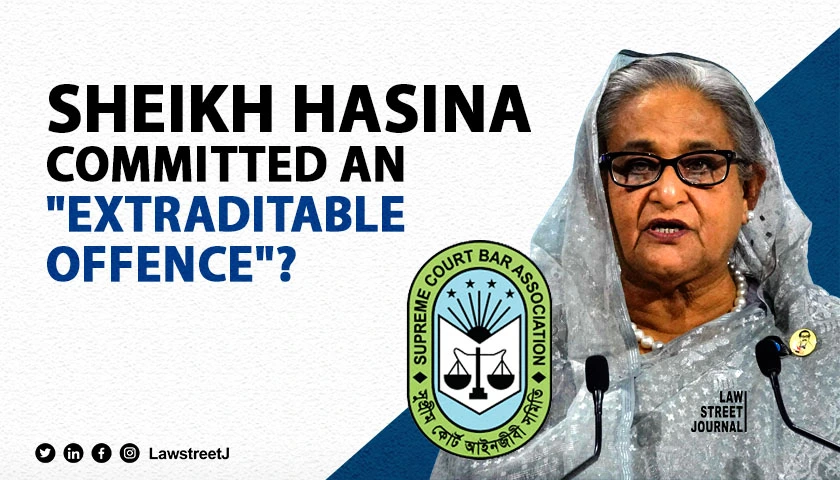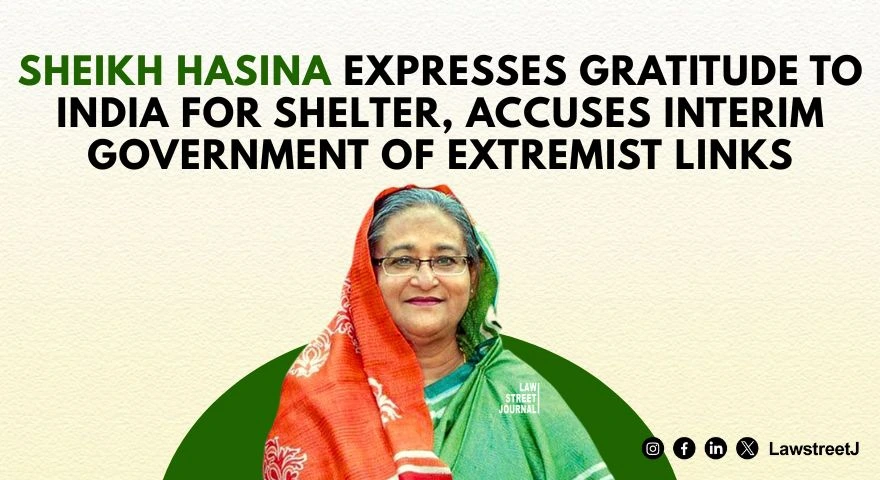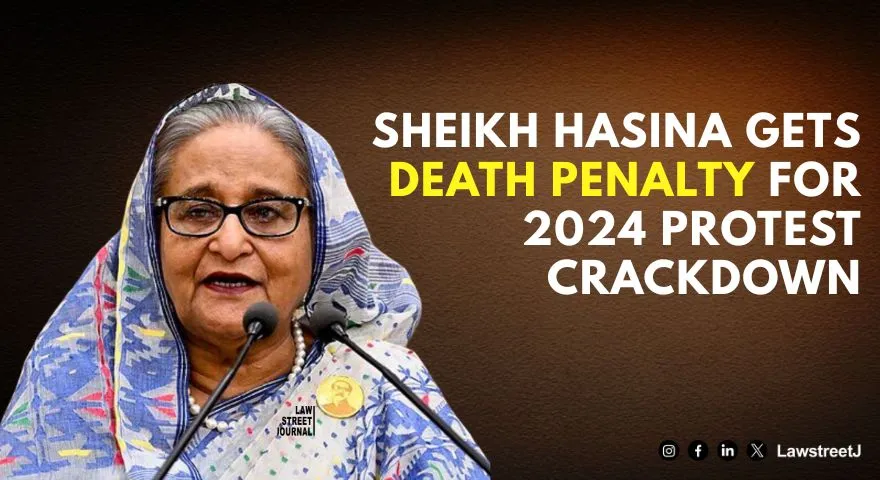Bangladesh: Former Bangladesh Prime Minister Sheikh Hasina has strongly condemned the recent explosion near Delhi’s Red Fort Metro Station, calling the act “unacceptable under any circumstances.” Her remarks came a day after Indian authorities confirmed that the November 10 blast was a deliberate terror strike that claimed multiple lives and left several injured. According to officials, the explosion occurred around 6:45 p.m. near Gate No. 1 of the Red Fort Metro Station when a Hyundai i20 vehicle suddenly detonated. The impact was powerful enough to set nearby cars on fire and shatter the glass fronts of surrounding shops. Emergency teams from the Delhi Fire Service and local police reached the scene within minutes to control the flames and rescue the injured.
Authorities confirmed that at least ten people were killed, while more than twenty others suffered injuries, several of them in critical condition. The injured were taken to LNJP Hospital and the AIIMS Trauma Centre for treatment. Forensic experts later confirmed the use of high-grade explosives. The Delhi Police and National Investigation Agency (NIA) have treated the explosion as a terrorist attack. The Union Cabinet described it as a “heinous terror incident” and ordered a full investigation involving multiple law-enforcement and intelligence bodies. Investigators have detained three medical professionals from Jammu and Kashmir in connection with what has been described as a “white-collar terror module.” Security sources said electronic data and surveillance footage are being examined to identify all individuals connected to the plot.
The case has been registered under the Unlawful Activities (Prevention) Act (UAPA), 1967, and relevant sections of the Indian Penal Code (IPC) for murder, criminal conspiracy, and destruction of property. The NIA has officially taken charge of the case, citing possible cross-border links and foreign terror involvement.
Sheikh Hasina’s Response and Regional Impact
In a formal statement issued on November 11, Sheikh Hasina expressed “deep sorrow and grief over the loss of innocent lives,” extending condolences to the victims’ families. “There is no justification for such acts of violence,” she said, emphasizing that terrorism in any form weakens the foundations of peace and development. Hasina, who currently heads Bangladesh’s ruling Awami League, also pointed to the growing threat of transnational extremist networks. Without naming specific organizations, she referred to “terror elements operating across borders,” echoing Indian intelligence concerns about the role of Pakistan-based groups.
Observers noted that her message aligns closely with India’s long-standing position on cross-border terrorism. Analysts believe Hasina’s statement will further strengthen security cooperation between India and Bangladesh, which have previously worked together under regional frameworks such as the South Asia Terrorism Portal (SATP) and SAARC’s Convention on the Suppression of Terrorism. Her remarks also highlight the continuity of Bangladesh’s policy on counter-terrorism, emphasizing coordination on intelligence exchange and border vigilance.
Following the blast, the Government of India invoked emergency protocols under the Disaster Management Act, 2005, and directed heightened security measures across metro stations, transport hubs, and major public areas in the capital. The Delhi High Court has been briefed on the progress of the case. Anticipatory bail pleas filed by the detained suspects have been rejected, and the NIA is expected to file its initial chargesheet within 30 days, as required under UAPA provisions. Security agencies are also reviewing metro surveillance infrastructure and exploring the use of AI-assisted monitoring systems to detect suspicious activity. Meanwhile, rights organizations have urged investigators to ensure transparency and adherence to legal safeguards throughout the process.
International and Diplomatic Response
Condemnations have poured in from across the world, including statements from the United Nations, the European Union, and several South Asian governments. All emphasized the need for coordinated regional efforts against terrorism and for the protection of civilian lives. Within Bangladesh, Hasina’s comments were widely seen as consistent with her government’s record of cooperating with India on counter-terrorism. Joint operations in past years have helped dismantle several militant networks that operated across the two countries’ borders. Analysts believe her statement may also influence upcoming security dialogues between New Delhi and Dhaka, particularly in areas of intelligence sharing and cyber monitoring.
The Red Fort blast stands as one of the most serious terror attacks in recent years, prompting urgent responses from India’s legal, security, and diplomatic establishments. Sheikh Hasina’s clear condemnation and call for unity reflect a shared regional resolve to combat extremist violence through cooperation and vigilance. As investigations continue, authorities remain focused on bringing the perpetrators to justice and reinforcing counter-terror mechanisms to safeguard urban spaces. The incident has once again underscored the need for cross-border collaboration to prevent terrorism and protect peace in South Asia.

